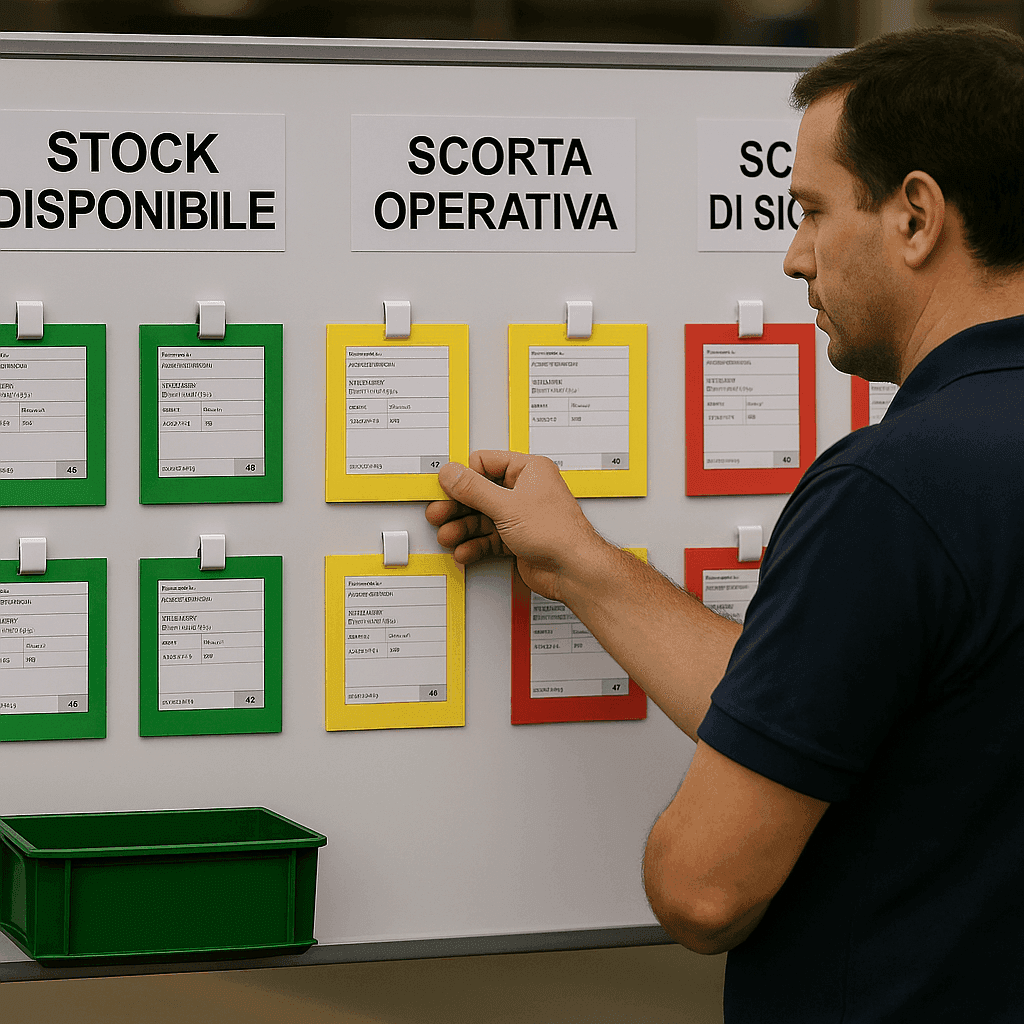Participation fees vary depending on when you subscribe. Don’t miss our offers!
Master Green Belt in Lean – CGBL – 1st Level
Testimonials
See all >

DURATION
5 days in 3 months

UPCOMING COURSES
18 March 2026 Basel
26 March 2026 Lausanne

PRICING
3820 CHF + VAT (includes exam)
The course is delivered in 5 training days and ends with the discussion of a simulated exam. After the course, the participant will take the final exam for the CGBL certification, Certified Green Belt in Lean issued by IIBLC® - International Independent Board for Lean Certification (www.iiblc.org).
The aim of the course is to provide the tools to become member of an improvement team, learning the following basic concepts and Lean techniques:
• Transfer the Lean vision of how to create value for the customer
• Provide specific knowledge in the Lean area, the techniques and tools to be used to identify the flow of value and identify sources of waste
• Provide a structured approach to follow for a successful Lean implementation that also describes the cultural and organizational changes needed
• Through Case Study of Lean implementation, explain the critical issues to be addressed and the solutions adopted, accelerating the learning process
• Prepare to pass the Lean Green Belt (CGBL) IIBLC® exam
The course is delivered by IIBLC® certified instructors, with many years of teaching and professional experience in the Lean area.
Advance also offers in-house training programmes on request.
"I am very pleased with the Interactive Lean Green Belt course at Advance School that has allowed me to learn Lean Best Practices, and to become internationally certified. Between the classroom sessions and the Interactive Learning format, I chose the latter for work reasons, and also because I already had experience in Lean: I found the course very well structured and up-to-date, and the instructors were extremely well prepared". Luca Borgatti, Plant Manager, Cargill Starch & Sweeteners, Italy.
-
Teaching plan
READ THE DETAILS ▾
MASTER STRUCTURE
The course includes:
- a classroom training phase
- an individual study phase with remote support from instructors
- a simulation of the classroom exam with discussion of the results
Practical exercises are conducted during the course to allow immediate verification and application of the concepts outlined in the classroom, and use the tools adopted in Lean implementations to identify Value flows and waste sources. Successful Lean implementation Case Studies are also discussed.
The course is structured across 5 days of classroom training with certified instructors.
Teaching is in English.
DETAILED PROGRAMME
1. Introduction to Lean
What is Lean
History
Business Strategy
Ford, GM and Toyota system
The House of Toyota
The 5 Lean principles: Value, Value Stream, Create Flow, Pull, Perfection
2. Lean Principles
2.1 Defining Value and Waste
Value added activities: Definition and Recognition
Viewpoint of the Customer
Muda/Mura/Muri
7 Muda (7+1): Definition and Recognition
Lead Time: Components of Lead Time
Effects of shorter Lead Time
2.2. Identifying the Value Stream
Basic principles of Value Stream Mapping
Defining product families
Current state Value Stream Map
Basic symbology
Process box - Boundaries
Data box
Inventory triangle (production, office, service)
Material flow
Production Planning
Transportation
Kanban loops and supermarkets
Inventory, Waiting and Delay
Information flow
Lead Time ladder: Components, Meaning
Cycle Time
Process Time
Single Stream VSM: How to start drawing, Paper & Pencil drawing, Software based VSM
Future state Value Stream Map
Loops and Symbology
2.3 Creating Flow
Takt Time: Definition and Calculation
Continuous flow vs. Job Shop
One-Piece-Flow
FIFO lanes
5S technique
SMED technique
• Definition of a setup
• Why (EPEI, Flexibility, Capacity, Cost reduction)
• Internal vs. external setup
• Converting internal to external setup
• Setup instructions
2.4 Pull from Customer demand
Pacemaker
Interval: Definition and Calculation
EPEI
Kanban definition
Kanban types
• Supermarket
• Withdrawal Kanban
• Production Kanban
• Specific Kanban
• Generic Kanban
• Two (three)-bin system
Kanban and ERP system
Heijunka
2.5 Striving for Perfection
Kaizen
Kaizen-event
Standardised work: Definition, Importance, Work instructions, Continuous improvement
Poka-yoke
Visual Management
• Power of visual control
• Andon
• Marking, spaces, pictograms
• Daily reporting board
• Weekly reporting board
• Management reporting
Basic Lean measures
• Throughput time
• WIP
• Scrap/rework/PPM
3. Improvement Management
3.1 Basics of Project Management
Introduction to Project Management
Triple Constraint Management
Five Process Groups of Projects
Nine PMI Knowledge Areas
Project Management Tools
• Project Charter
• Work Breakdown Structure (WBS)
• Schedule development
• Cost estimating
• Responsibility Assignment Matrix (RAM)
• Risk Management
• Progress reporting
3.2 Complementary Improvement Methodologies
Six Sigma
• Jidoka
• Complexity – Variation – Mistakes
• DMAIC improvement methodology
• Basic Six Sigma Tools
TQM tools
• PDCA
• Pareto
• Ishikawa
• Flowchart
• Histogram
• Check sheets
• Scatter diagram
• Control sheets
• Five Why’s
Process Mapping
-
Who is the course aimed at
READ THE DETAILS ▾
- Representatives and staff in the areas of Production, Supply Chain, Quality, Purchasing and Organisation in the Industrial and Services sectors;
- Area Operations Consultants;
- Plant Managers;
- Production and Process Engineers;
- Companies wishing to implement Lean
-
EXAMS
READ THE DETAILS ▾
The exam is a multiple-choice test with 80 theoretical questions (paper & pencil format) in English. The candidate has 3 hours to complete the exam. A score of 70% is required to pass the exam.
EXAM DATE
DEADLINE15/03/2025
14/02/2025EXAM DATE
DEADLINE14/06/2025
16/05/2025EXAM DATE
DEADLINE20/09/2025
22/08/2025EXAM DATE
DEADLINE13/12/2025
14/11/2025REQUIREMENTS There are no pre-requirements. LOCATION Basel
On request, the exam can be taken in-house at the Company’s offices.REGISTRATION Send the registration's request to: info@advanceschool.ch
Within 10 days before the exam, a confirmation email will be sent by Advance which will indicate the time, the address and all the details.
-
Pricing and enrolment
READ THE DETAILS ▾
ENROLMENT FEE
3870 CHF + VAT
For registrations received 45 days before the start date of the course, it is foreseen a 5% rebate on the enrolment fee.
Note: The fee includes both teaching material and registration for the exam.
The course requires a minimum of 6 participants for the activation. Seats are limited in order to allow optimal interaction between participants and instructors.
To enrol, send the registration form with the receipt of the bank transfer or a purchase order to the following Email: info@advanceschool.ch
INSIGHTS
Linked News
-

22/02/2025
Employee Engagement in Lean Management: A Key Driver of Value Creation
Read how active employee engagement is at the core of lean management success. It discusses the vital role of empowering employees and the dynamic interplay between leadership and team members, using examples from companies like Toyota, Nike, and GE to illustrate how innovation, waste reduction, and continuous improvement are achieved. » -

27/03/2025
Leveraging Industry 4.0 to Enhance Value Creation in Lean Management
Discover how the timeless principles of Lean—efficiency, waste reduction, and continuous improvement—are being supercharged by cutting-edge technologies like AI, IoT, and Big Data. From smart factories to predictive maintenance, this powerful synergy is redefining operational excellence and setting a new standard for agile, data-driven value creation. » -

23/05/2025
How to Successfully Implement a KANBAN
This article outlines the successful implementation of a KANBAN system in a company. It details the transition from traditional MRP and reorder point methods to a lean, visual approach that improved material flow, reduced stockouts, and simplified operations. Through real-world steps—component standardization, Kanban card setup, and logistics coordination—the company achieved a more responsive and efficient supply chain without relying on complex IT systems. »














